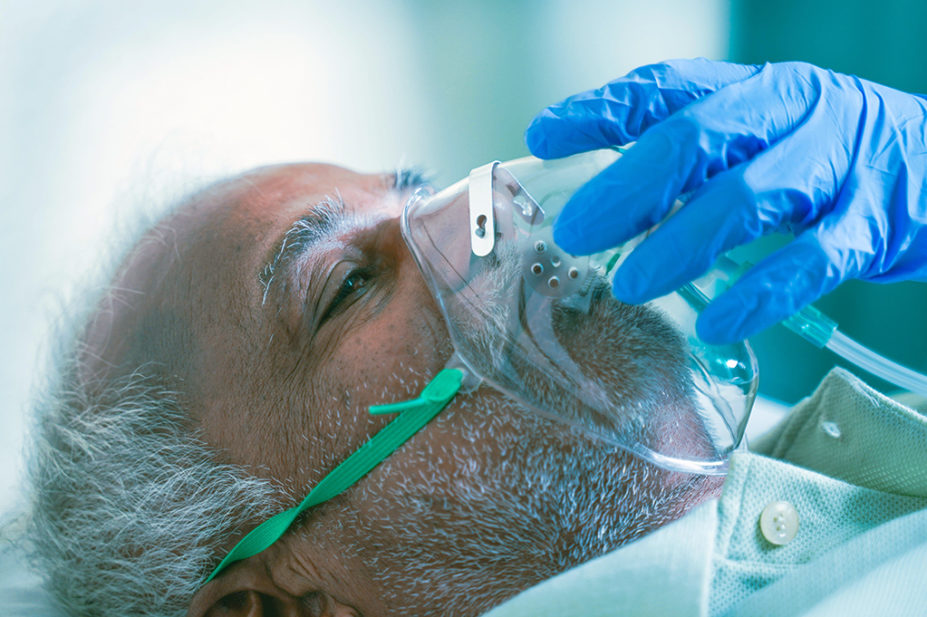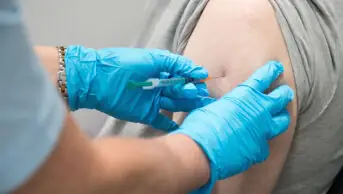
lakshmiprasad S / Alamy Stock Photo
Adding the rheumatoid arthritis drug, baricitinib, to another immunomodulatory treatment reduces the risk of death in hospitalised patients with severe COVID-19, the results from a major study suggest.
Data from the ‘Randomised evaluation of COVID-19 therapy’ (RECOVERY) trial, which have not yet been peer-reviewed, have showed that adding janus kinase (JAK) inhibitor baricitinib to usual care reduced the chance of the patient being progressed to invasive mechanical ventilation or death from 17% to 16% (risk ratio 0.90, [95% CI 0.81 to 0.99], P=0.026).
Patients given baricitinib were also more likely, than patients just receiving usual care alone, to be discharged within 28 days (80% versus 78%, age-adjusted rate ratio 1.10, 95% CI 1.04-1.15; P<0.001).
The University of Oxford-led study randomised 4,008 patients to usual care and 4,148 patients to usual care plus a 4mg dose of baricitinib once daily for 10 days, or until they were discharged.
At randomisation, usual care for 95% of all patients was a corticosteroid such as dexamethasone; 23% were receiving the rheumatoid arthritis drug, tocilizumab, and 20% were receiving the antiviral, remdesivir.
More than two-thirds (68%) of patients were being given oxygen and 27% were receiving respiratory support, such as non-invasive mechanical ventilation.
Martin Landray, professor of medicine and epidemiology at Oxford Population Health and joint chief investigator for RECOVERY, said: “It is now well-established that in people admitted to hospital because of severe COVID-19, an over-active immune response is a key driver of lung damage.
“Today’s [3 March 2022] results not only show that treatment with baricitinib improves the chances of survival for patients with severe COVID-19, but that this benefit is additional to that from other treatments that dampen down the over-active immune response, such as dexamethasone and tocilizumab.
“This opens up the possibility of using combinations of anti-inflammatory drugs to further drive down the risk of death for some of the sickest patients.”
Overall, 513 (12%) of the patients in the baricitinib group died within 28 days, compared with 546 (14%) patients in the usual care only group, a reduction of 13% (age-adjusted rate ratio 0.87, 95% confidence interval [CI] 0.77 to 0.98; p= 0.026).
The researchers concluded in the paper that the benefit of baricitinib was consistent regardless of which other COVID-19 treatments the patients were also receiving, including dexamethasone, tocilizumab or remdesivir.
They added that there was no evidence that the short course of baricitinib used in RECOVERY increased the risk of other infections or of blood clotting.
Athimalaipet Ramanan, honorary professor of paediatric rheumatology at the University of Bristol, said the RECOVERY results further confirmed the role of baricitinib in the reduction of mortality in adults with COVID-19. “Although the RECOVERY trial is not a placebo-controlled trial, which is a significant limitation, the important aspect of the finding from this paper is that baricitinib is effective in reducing mortality, even in those treated with IL-6 blockade (e.g. tocilizumab),” he said.
“As an oral agent with a short half-life and potentially less expensive, this makes baricitinib a more attractive agent after steroids in low/middle-income country settings. This paper adds further weight to the recently published WHO guidance which states that steroids, tocilizumab and baricitnib are the three drugs with strong evidence for use in COVID.”
Baricitinib is the fourth treatment to be shown to be effective through the RECOVERY trial, following dexamethasone, tocilizumab and the monoclonal antibody cocktail, Ronapreve (casirivimab plus imdevimab).


